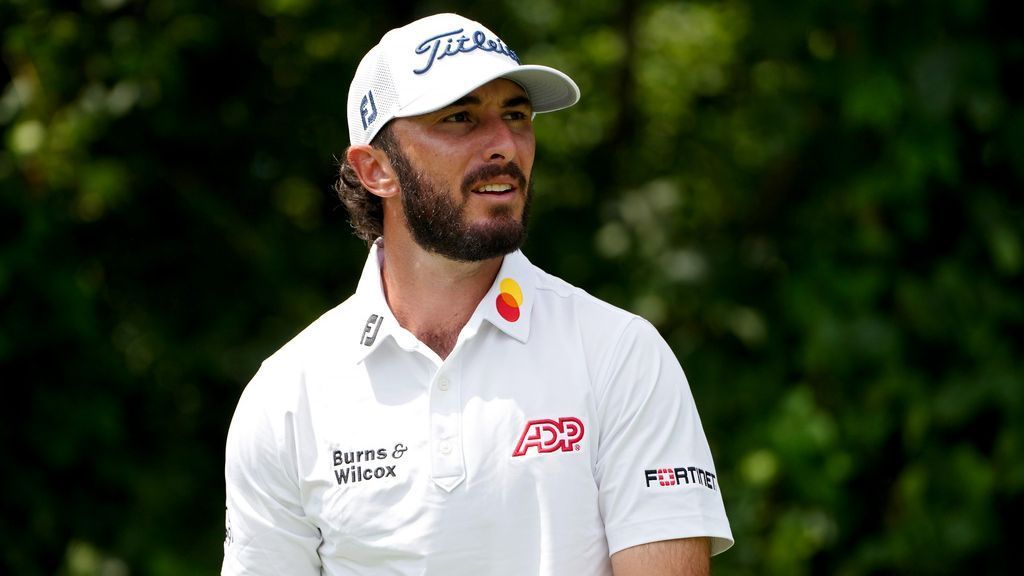HBO’s Tapia begins with an overhead shot of the New Mexico desert. The digital camera pans throughout the yellow panorama and settles on a solitary man, strolling together with his head down as if ruminating on a darkish reminiscence. “No nice fighter ever runs from the darkness that lies forward of him,” states narrator Liev Schrieber. “It’s extra pure to embrace it.” The lone walker, probing the wilderness as if seeking existential which means, is Johnny Tapia, who was born in Albuquerque however given his probability at life within the ring. Tapia by no means ran from his personal darkness a lot as he perpetually hovered over it. His life, which ended at simply 45, was spent making an attempt to not fall into the abyss.
Tapia, a 5 time world champion, is perhaps one of many biggest tv fighters ever, a distinction he shares with fellow 90s legend Arturo Gatti. That’s to say, he possessed the uncommon medley of expertise, charisma, and recklessness that leaped by way of the display to grab the viewer’s coronary heart. An explosive mixture puncher who backed up his suicidal tendencies with athleticism, he repeatedly waged all-out battle within the ring and punctuated every miraculous victory together with his trademark back-flip. He appeared to enjoy hostility and fight, as if his self-worth was proportional to his capability to present and take ache.

Johnny Tapia had an extremely tragic formative years, the main points of that are tough to transcribe, to say nothing of experiencing them firsthand. When Johnny was solely eight-years-old, his mom and solely dad or mum was raped and murdered on the age of 33, stabbed 22 instances with an ice choose and left to die on the aspect of the street. Johnny heard her screams as she was taken away, chained to a pickup truck, however his cries for assist have been ignored. Her killing wouldn’t be solved for nearly 25 years. With no father to observe over him, Tapia lived together with his grandparents. In accordance with Johnny, his grandfather was a “rugged, robust, macho man” and his affect resonated together with his grandson, who rapidly gained a fame as a fearsome avenue fighter. Tapia ultimately took these abilities to the ring, the place he confirmed himself equally proficient at regulated fight.
After a standout, Golden Gloves-winning newbie profession, Tapia turned professional. He drew in his first bout however his profession quickly exploded, and Johnny wouldn’t lose till his forty-ninth prizefight. However regardless of his early success, his life was something however ordered, as he escaped the streets solely when bodily within the ring. Out of it, their affect held sway. Although an energetic skilled, Tapia belonged to a avenue gang and started utilizing cocaine as a younger man. The intoxicant was maybe the one factor able to ordering his ideas. Undefeated and solely 23-years-old, the drug was his undoing when he examined constructive in June of 1990 after which did so once more a number of extra instances within the ensuing months. Tapia was banned from boxing for 3 years and he describes his suspension as one of many lowest instances in his life. To make cash he generally participated in underground fights at a neighborhood bar, the place apparently the one prohibited weapon was a gun.

In boxing, Tapia’s aggression was rewarded; on the road it introduced him to the sting of loss of life. Fortuitously, he was allowed to renew his profession in 1994. Tapia had lately wed Teresa Chavez, who would train a chilled and supportive affect in his life, and wins got here rapidly for the newly married man. He fought seven instances in 1994 and in October he took the WBO tremendous flyweight title from Henry Martinez in his hometown of Albuquerque. That is the documentary’s most triumphant second, and it was in all probability the apex of Johnny Tapia’s profession. The digital camera switches from footage of his euphoric celebration to that of a shirtless, paunchy Tapia, sitting in a shabby room the place he watches the replay as a grizzled 45-year-old. “Albuquerque,” he says, “I’m nonetheless your champion.”
Whereas the Martinez title-winning combat is perhaps his biggest second, there have been different notable wins. One specifically was his 1997 bout with fellow Albuquerquian Danny Romero. The 2 had circled one another for years and once they lastly met on the Thomas and Mack Heart in Las Vegas a unprecedented police presence was required due to the worry that violence would erupt between gang members. In a efficiency that summoned all of his talent, showmanship and gall, Tapia outfought and outlasted Romero and gained a unanimous choice.

Although profitable between the ropes, Tapia hadn’t divested himself of his drug behavior. He was nonetheless getting excessive and was now coaching below Freddie Roach (whose speech is demonstrably clearer in documentary footage than it’s right this moment). Throughout this time, Tapia’s spouse, Teresa, had authorities re-open his mom’s homicide case. Utilizing DNA proof, investigators solved the crime, pinning it on the final man to have been seen together with her. There could be no retributive justice although, because the killer had been run over by a automotive eight years earlier. The denial of any chance to actual vengeance stung Johnny. He says within the movie: “I might have stabbed the shit out of him like no person’s enterprise. No person places their fingers on my mama. That’s the love of my life. That’s my queen.”
That is maybe the documentary’s most poignant second. All of Tapia’s ache and psychological torment is traced to its supply on this one admission. The injury wreaked on him by his mom’s homicide and the diploma to which it knowledgeable his worldview is awfully unhappy, and for these of us who haven’t endured the identical trauma, equally not possible to grasp. Our makes an attempt to think about his emotional and psychological ache nonetheless depart us on the distant fringe of Johnny Tapia’s actuality.

Tapia continued to combat, even after he was identified as affected by each manic-depression and post-traumatic stress dysfunction, however boxing had ceased to be a dependable refuge. Two controversial defeats to Paulie Ayala launched a brand new dimension to his expertise as knowledgeable, that of shedding, and it didn’t sit properly with Tapia, who felt he was robbed in each fights. However he went on together with his profession and was paid two million {dollars} to face legendary champion Marco Antonio Barrera in 2002. Johnny misplaced once more and this is able to be the ultimate time he hovered near boxing’s zenith.
After the Barrera combat, Tapia’s issues with drug abuse grew to become extra acute. He skilled frequent relapses over the subsequent few years and a number of other overdoses. It’s mentioned he was declared clinically useless 5 instances in his life, a life that was ceaselessly, stubbornly, incurably tough. Tapia went to jail, struggled with melancholy, and tried suicide. By no means once more did he combat for a world title.
In 2007 Johnny overdosed once more and was taken to hospital the place he lay in a coma. On the drive to go to him, his brother-in-law and nephew have been killed in a automotive accident. Thus, loss of life reclaimed its place of prominence for Tapia, who deemed himself chargeable for what occurred. “I felt that I killed [them] ‘trigger I used to be within the coma,” he says. “If I may take that each one again I might.”

Not a prime boxer, Tapia returned to the ring a number of extra instances earlier than his remaining combat in June, 2011, when, chubby and sporting the weathered face of somebody ten years older, he gained by knockout in Albuquerque. Although boxing would offer no extra thrills, there was a shocking growth in his life. Tapia discovered by way of DNA testing the true identification of his father, a person nonetheless dwelling and whom Johnny had lengthy recognized.
There’s a poignant second towards the top of the movie wherein father and son sit collectively. Each sport dozens of tattoos, having used their pores and skin as parchment on which to inscribe their very own dramas. Tapia doesn’t dwell on their relationship for lengthy, nor does it element how strongly it developed previous to Johnny’s loss of life, but it surely should have been astonishing, and maybe astonishingly unhappy, for Johnny to understand, after 4 many years, that he was not alone on the earth, and that the person chargeable for his creation had been shut by all alongside.
Like so many athletes as soon as their careers have ended, Tapia returned to the one actual vocation he’d recognized and opened a boxing fitness center in Albequerque. On the finish of the movie he’s at a neighborhood radio station, accompanying one among his younger fighters to advertise an upcoming card. The radio station segues to a business with Snoop and Wiz Khalifa’s “Younger Wild and Free” and listening to the music, the ex-champion sways joyfully back and forth. When at his finest, Johnny Tapia met the world with the best smile.

If a human being is a vessel of feelings, Tapia was a powder keg, perpetually on the verge of implosion. His emotional transparency popularized him however he was doomed by his lack of management. An insightful and revealing documentary, Tapia reveals each his darkness and his higher nature because it presents a life that’s too complicated to evaluate. With tragic irony, it was his coronary heart—which had by no means as soon as let him down contained in the ring—that failed him. Johnny Tapia died, for the ultimate time, of coronary heart failure at 45, an age a lot too younger for a remaining exit. However with out prizefighting, life for an impulsive, troubled, and indignant younger man on the New Mexican streets may need ended a lot sooner. “Boxing,” he tells the digital camera, “saved my life.”
— Eliott McCormick
The publish Johnny Tapia: Boxing Saved His Life appeared first on The Struggle Metropolis.


















